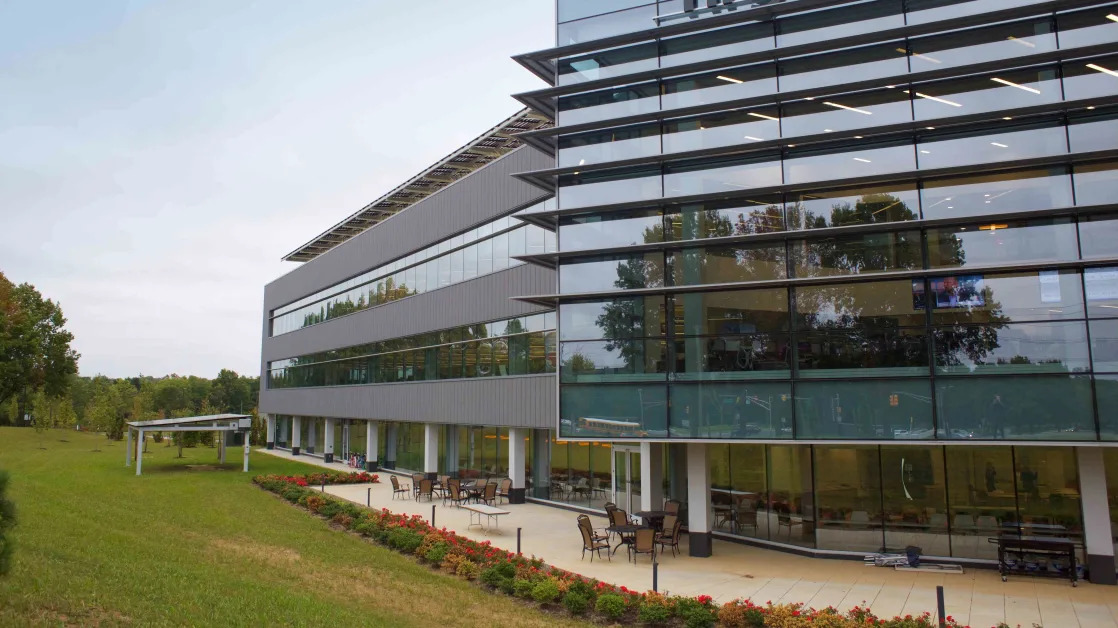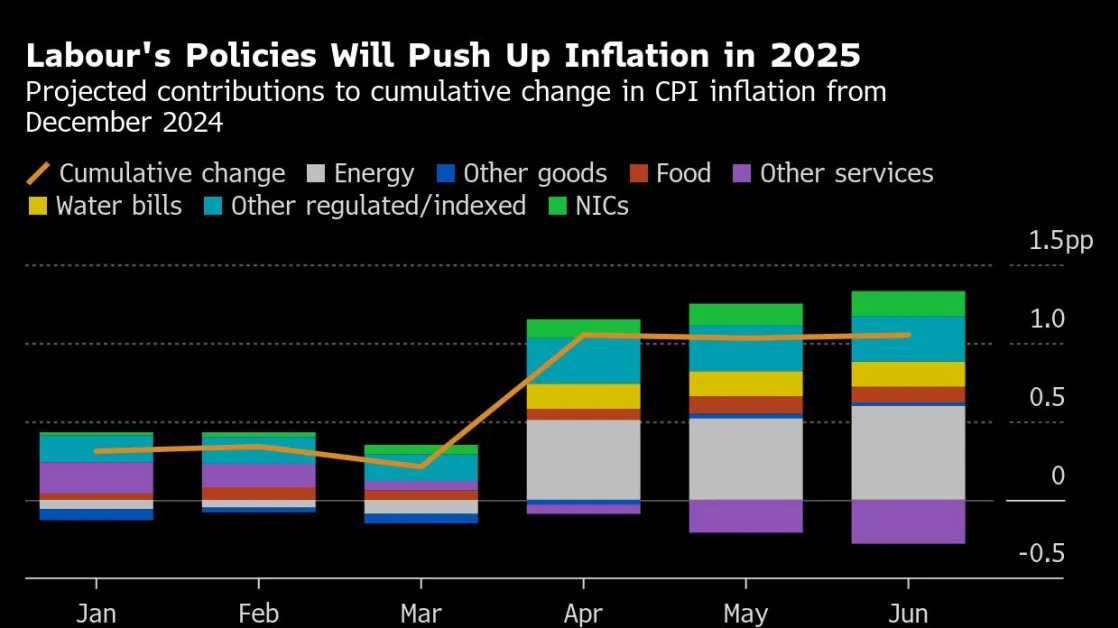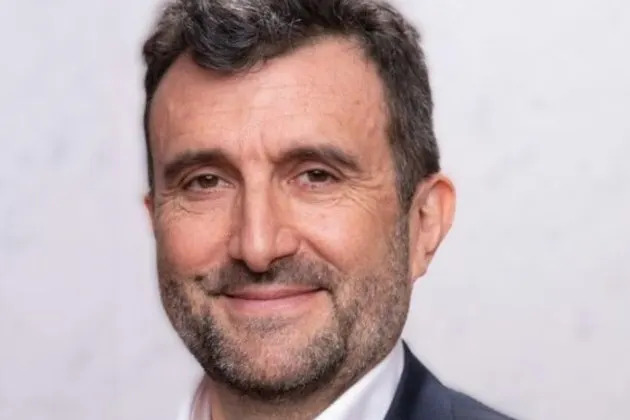
FOR EVER: French sustainable dye start-up Everdye has appointed fashion industry veteran Philippe Berlan as chief executive officer.
Berlan formerly held CEO roles at Lancel , Petit Bateau and La Redoute, and will lead the start-up as it scales up its natural dye technology, which uses bio-sourced pigment, made of vegetal waste and minerals. He will take the reins of the company to foster key partnerships as the company grows.
More from WWD
“I’m thrilled to join Everdye at such a pivotal moment,” Berlan said. “The environmental impact of textile dyeing is a pressing issue, and Everdye’s solutions are a concrete response to this challenge. I look forward to working with the team to set new standards in sustainability for the textile industry worldwide.”
The company produced our first commercial production in two colors last month, a year after raising 3.4 million euros in a seed funding round led by MakiVC and Asterion Ventures to commercialize its process.
“Philippe’s extensive experience in steering both business growth and sustainability initiatives makes him the perfect leader for Everdye’s next phase,” added cofounder Amira Erokh.
Berlan takes the helm from cofounder Ilan Palacci. Everdye took home the ANDAM Innovation Prize in 2022.
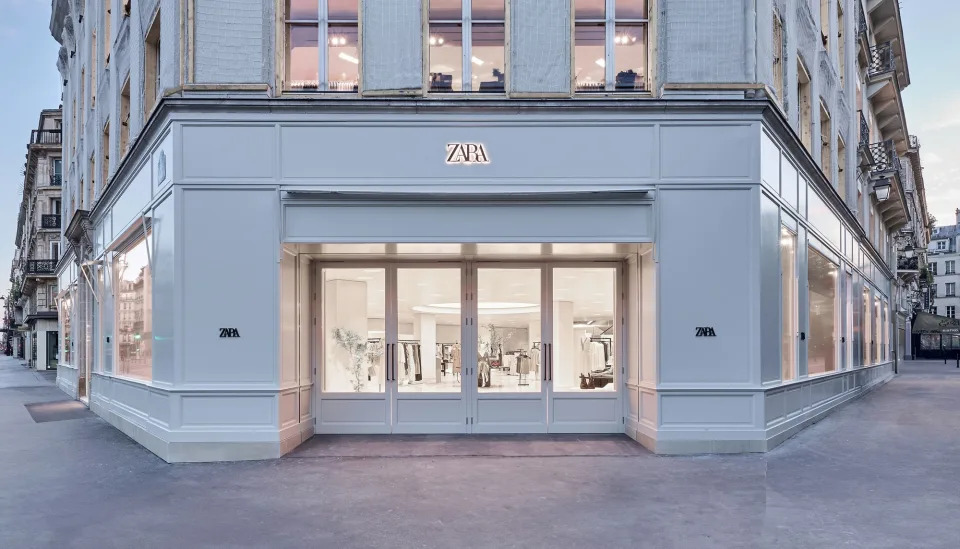
FOSSIL FUELED: The Changing Markets Foundation’s latest survey of 50 major fashion brands found that reliance on polyester and other fossil-fuel based fabrics is increasing. The nonprofit released the findings in a report titled “Fashion’s Plastic Paralysis.”
In the survey, Spanish fast-fashion behemoth Inditex revealed that its use of fossil-fuel based fabrics grew by 20 percent since the last questionnaire in 2022. The Zara and Massimo Dutti parent company disclosed the highest use of synthetics by volume at 212,886 tons in 2023, a significant increase from 178,030 tons in the 2022 survey.
Fast-fashion player Shein reported the highest use of synthetics by percent of garments on offer. It reported that 82 percent of its clothes are made up of fossil fuel-based fibers. The company did not disclose its percentages in 2022, and did not reveal its total volume of textiles used.
Boohoo had the second highest percentage of fibers in its product mix at 69 percent, up from 64 percent in 2022, followed by Lululemon at 67 percent of its garments, an increase from 62 percent in 2022.
“Fashion is at a critical juncture, with major brands doubling down on the fast-fashion model, flooding the market with disposable, polluting fabrics. These companies continue to bet big on plastic fibers, showing little intention to change and resorting to tactics borrowed from the fossil fuel industry to distract and delay real progress,” said Changing Markets Foundation’s senior campaign manager Urska Trunk.
“ We need strong, decisive action to steer fashion away from its dependency on fossil fuels and toward creating high-quality clothes that people want to keep for longer.”
The report also noted that while the majority of companies participated in the survey in 2021, 27 brands, more than half the 50 asked to take part, failed to respond in part or in full.
Changing Markets noted that Reformation, which has committed to reduce synthetics to less than 1 percent of total sourcing by 2025 is on track to do so, with synthetics currently 2.56 percent.
Several brands including Benetton Group, Esprit, G-Star Raw, Hugo Boss, Inditex, Mango and Reformation, among others, said they plan to decrease their use of synthetics. However Esprit, which had previously pledged to decrease its use of synthetics, upped its use 15 percent by volume in 2023. In 2022, Esprit had slimmed down from more than 200 suppliers to just a handful in an effort to upscale the core brand with more expensive materials. However the relaunch didn’t take off and the company entered bankruptcy in Europe and is in the process of “rightsizing” it’s business in the U.S.
Primark, which is on a growth spurt in the U.S. with 24 stores and 60 more planned by 2026, said it plans to increase their use of fossil fuel-based textiles in the future.
Overall, fossil fuel fibers are projected to reach 73 percent of textile production by 2030.
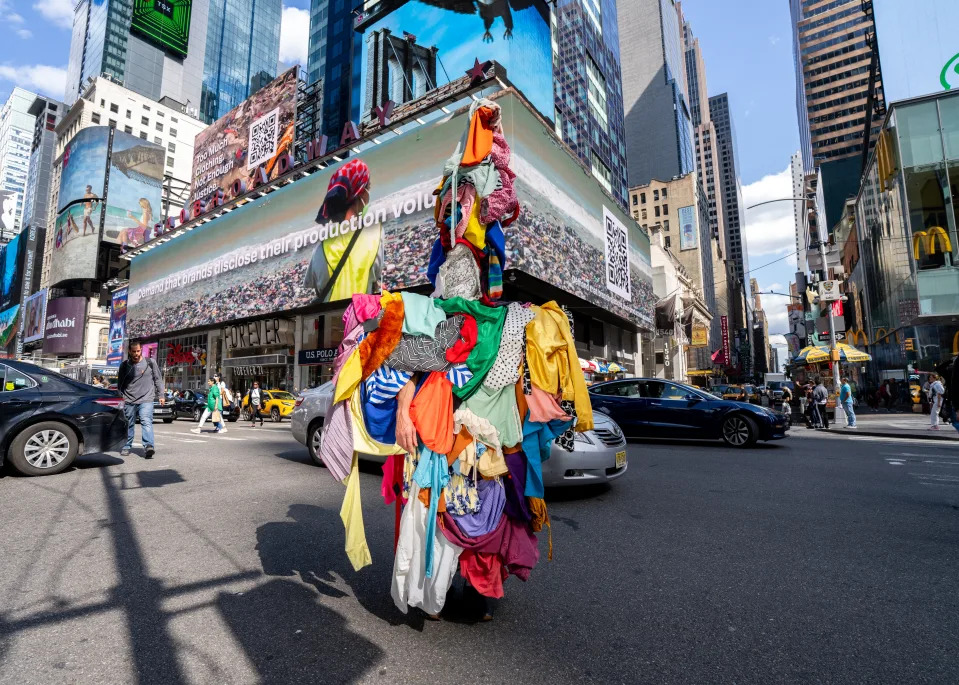
SPEAK UP: The Or Foundation took over New York’s Times Square with its “Speak Volumes” campaign to call for fashion brands to transparent and accountable about how many items of clothing they actually produce per year.
The Times Square takeover encompasses three of the area’s giant billboards, including one about Forever 21, to show images of fashion waste, as well as an 8-foot-tall art installation made from piles of discarded clothing.
The project sets out to highlight global crisis of overconsumption and the consequent fashion waste dumped in the global south. The nonprofit is based in Ghana, which is one of the world’s leading receivers of secondhand clothing with 15 million garments shipped there per week, much of which ends up being incinerated or washing into the ocean and creating marine waste.
“There’s incredible innovation, there’s amazing ideas, there’s a lot of investment going into developing solutions to fashion’s waste crisis. But the reality is that none of those solutions are going to make a dent if we are not honest about the business model of overproduction and the fact that these solutions are currently being buried under an endless, limitless supply of product,” said The Or Foundation cofounder and executive director Liz Ricketts.
If fashion is to move towards circular solutions to solve the waste crisis there needs to be accurate data in order to develop meaningful policies, she added. The foundation is calling for companies to be transparent about their production volumes by number of garments and not by weight in order to develop global extended producer responsibility policies.
The group created minute-long ads with lots of white space to draw attention from the flashing billboards that dominate the square. It was also personal for Ricketts, who worked as a designer for brands in New York before launching the foundation.
“It was really important to come back here with this message of asking everyone who loves fashion, who loves clothes, to be honest about the impact that overproduction has had on our industry,” she added.
The Times Square takeover will last until Sunday, and Ricketts will take the stage during NYC’s Climate Week to speak on a panel addressing fashion waste solutions panel on Sept. 26.
Best of WWD
Sign up for WWD's Newsletter . For the latest news, follow us on Facebook , Twitter , and Instagram .



